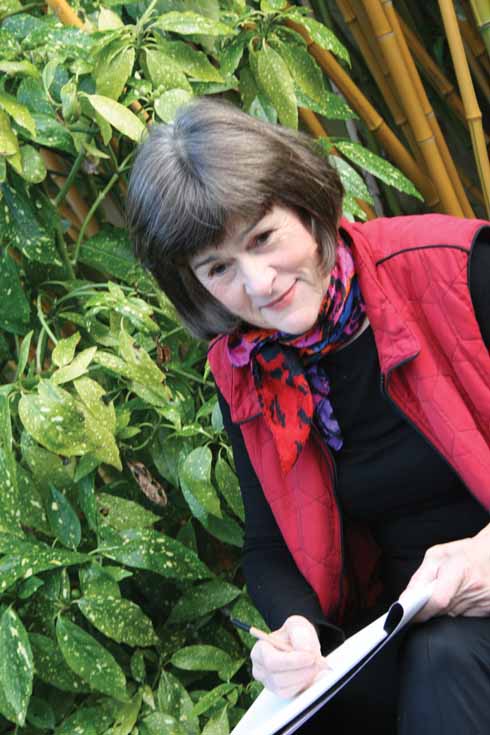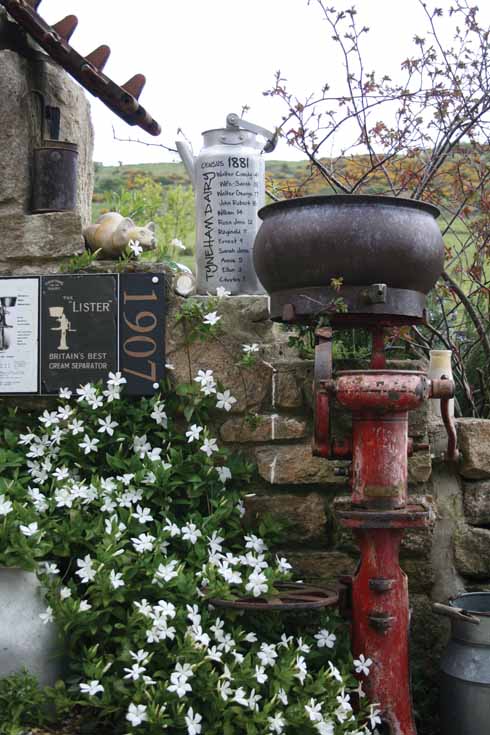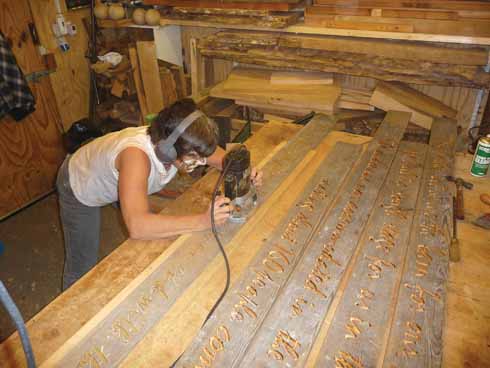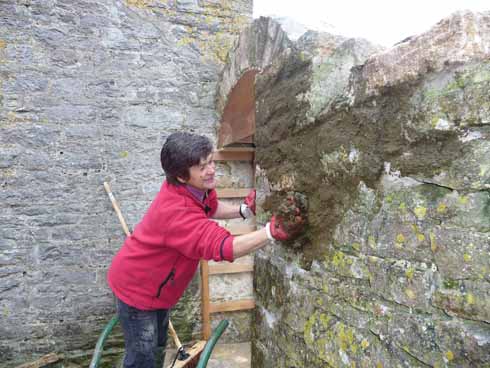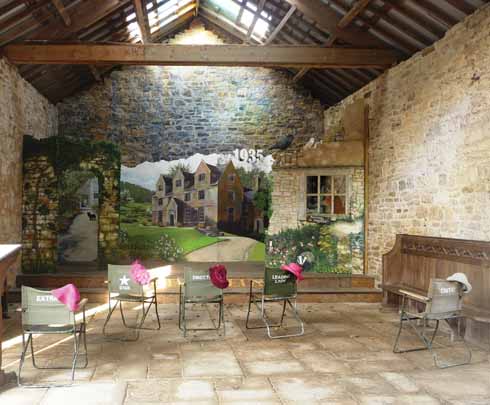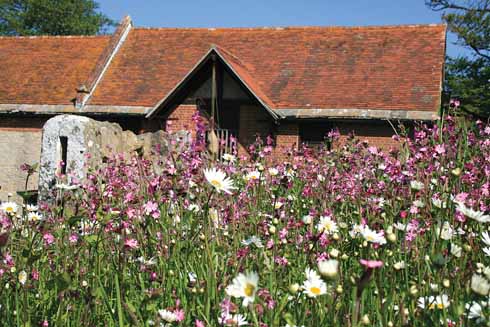Dorset lives – Lynda Price
Nick Churchill meets a very special Tyneham worker
Published in August ’15
Her work has been seen by tens of thousands of people, yet few of them realise it … and having left her mark on two of Dorset’s most singular attractions and worked tirelessly to enhance visitors’ enjoyment of both, that’s just the way Lynda Price likes it.
She’s an artist, graphic designer, project manager, writer, archivist and damned hard worker but with the exception of the last is reluctant to be described as any of them.
What is beyond doubt though is that neither Durlston Country Park where she worked for 22 years until 2001, nor Tyneham where she has run various projects for the Army would be quite the same without her. Durlston has undergone a major refurbishment and restoration since Lynda’s day when she created many of its distinctive wildlife interpretation boards and displays, but it remains close to her heart; while Tyneham exists almost in a world of its own. Not exactly a regeneration – more of a resurrection perhaps – Lynda has overseen work on the school, the church, the cottages, duck pond, phone box and on-going farm project with its Scrappy Wall, a stone wall augmented by ‘stuff’, from exploded munitions to rusty tools and other ephemera including a fried egg!
‘Everything I do has a liberal sprinkling of humour, I like things that make people smile,’ she explains. ‘I love the anonymity of working at Tyneham so I overhear things – two blokes in motorcycle leathers saying they should have got someone in to do a proper job, or a lady wondering out loud whether the Scrappy Wall is an art installation.
‘I know Major General Bond doesn’t like the tiles with the family names on them in the church, but it’s quirky, a bit different, there’s nothing remotely corporate or homogenous about Tyneham, I love its homemade-ness, that’s what makes it so special.’
Born in Nigeria in 1957, by the time her parents settled in Wiltshire a decade later Lynda had already lived in Germany and Scotland as well. The second of three girls, she also has four brothers and says they’re all very creative and competitive.
‘It was a case of if we wanted to do something we’d go and make it happen. We’re all very practical and good with our hands so we were always taking things apart and building things. If it needs doing I’ll do it so I’m as happy with a saw in my hand as a paintbrush, but I have to say I’m not very good with praise.’
Graduating in graphic design and fine art from Salisbury Art College in 1978 Lynda found a job on a government scheme at the National Motor Museum, followed a year later by another at Durlston.
‘We parked in thick fog and all I could hear were the gulls calling, it was eerie and quite magical. I walked down to the sea wall and looked over and saw the gulls seemingly floating in the mist. At the interview I was asked if I could do something like the flower poster on the wall and I said I could do better, but would prefer to paint it on a wall. Anyway, I got the job for my cheek and stayed there for 22 years.
‘It wasn’t that I had a completely free rein, but [head ranger] Hamish Murray put a great deal of trust in me and I just about got away with most things – like when they all went home and came back in the morning to find I’d painted a ferocious sea storm mural on one wall, complete with lightning and Swanage lifeboat!’
Seconded to the Army in 1994 to work on the reinstatement of the schoolroom at Tyneham, it was Lynda’s first experience of Purbeck’s much-romanticised ‘lost’ village.
‘Well, it’s neither lost nor secret, but straight away I had a feel for the possibilities of Tyneham. The schoolroom is unashamedly nostalgic, even down to the red ‘SP’ for spelling marked in the books. It’s very evocative. When people visit it’s often with several generations so you hear the older ones sharing stories of their own school days.’
Since 2002 Lynda has worked with and for the Army as the relics of Tyneham gradually emerge from decades of decay. It sits in the middle of a live firing range and as long as it does will never again be inhabited by anything other than wildlife, but the Army does have a policy of improving public access to it.
Hence Lynda’s distinctive interventions, which have developed as a vernacular for the village with the emphasis on restrained restoration. As Tyneham continues to evolve in unexpected ways, most recently the excavation of the pre-World War One stone pavement and gutter in front of Post Office Row, there is help at hand, notably from Dorset Countryside Volunteers and the local branch of the Dry Stone Wall Association.
‘Everything at Tyneham is there for a reason. For instance, the stage in the barn almost looks out of place, but it’s not, that’s how it was before 1914. I love it when visitors get up and use the stage – I once heard a Welsh tenor giving an impromptu rendition of ‘Nessun Dorma’ in there, it was terrific!’
Married to John since 1987, they have two children, marine geoscientist Morgan, 25, and nurse Rebecca, 23.
‘They’re my best creations and very much products of Dorset. It’s a wonderful place to bring up children and we spent a lot of time outdoors, doing things.’
Looking for something less punishing than the racquet sports she’d played since her teens, Lynda took up singing at the age of 40 and appears regularly with several choirs most notably the Canzonetta close harmony ensemble.
‘It was quite a challenge, I couldn’t even find middle C on the piano, but singing has added a new dimension to my life and I’ve been lucky enough to perform in some of Dorset’s loveliest churches.’
It all adds up to a life well lived that shows little sign of slowing up.
‘As long as the Army is happy for me to go on working at Tyneham it’s a privilege to do so in such a beautiful place. I am my work and I can’t imagine not doing it.’ ◗
